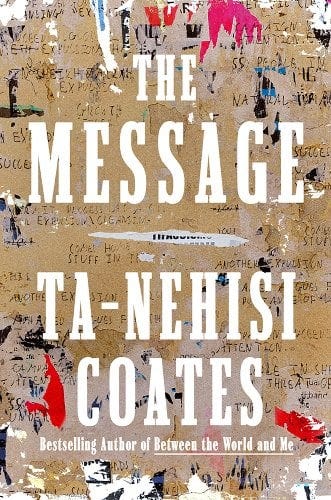It’s been a pleasure to see Ta-Nehisi Coates’ career evolve over the years, given that we’re not that far apart in age, and I think we have a similar lack of preciousness about our words and what our work is meant to do or be. What I think I mean by that is I see in Coates’ work and career a centering of the reader, and a care for questions over answers in service of deep understanding.
During my ten-year career as a newspaper reporter in newsrooms in Houston, Beaumont, Seattle, San Francisco and then, finally, Austin, I read almost every word Coates wrote. I remember feeling stunned that a Black writer was mentored by a titan in the traditional newspaper business, the late, fascinating David Carr. I envied Coates’ byline in the Village Voice, one my most beloved hometown papers, and then in The Atlantic. But when one of his most notable works, “The Case for Reparations,” was published in 2014, for some reason, I wasn’t able to really take it in. I think it was my own bullshit, honestly, and maybe it wasn’t any deeper than that.
Speaking of bullshit, by then, I was a few years out of the media business. I should probably specify further and say I was a few years out of the newspaper business, and I moved out of it because it was falling all the way apart and I needed sustainable work. I moved into speechwriting in Washington, D.C. and as part of this transition, I weaned myself — mostly — off of reading all the buzzy pieces circulating on Twitter in favor of learning to write like a human about health equity for Black and Brown people. The other part was that I was jaded about the potential for a real conversation about reparations — as cash payments or even structural, narrative reparations — and I wasn’t willing to do the emotional labor of sorting out what was truly possible based on what Coates probably laid out with exquisite care.
Being a decade removed from the writer I was and am always becoming, having read Between the World and Me and mostly agreeing with the beloved praise, I was delighted to receive an Advance Reader’s Copy of The Message from One World just as I was about to pre-order a hard copy for myself, which I’m probably still going to do.
In this slim, piercing collection, Coates revisits “The Case for Reparations,” as a kind of critique of himself, a slight revision. That prompted me, mid-book, to track down that piece and really sit with it before returning to his text, much of which attempts to reconcile the history of Israel and Palestine with the parallel history of brokenness between America and Blacks. I was impressed again and for the first time with that piece, but also about the clear-sighted vision of Coates that he has been pursuing in public with a kind of understated courage.
The Message seems to say, as a letter and meditation to his writing students, but really to all writers, that the first, maybe most important, ingredient in writing well, in writing for the ages, is to be both brave and curious. I don’t use the word courage lightly, although I don’t think people talk enough about the real risks and drama that is leveled at writers who are aiming to tell a truth or truths we would rather not read or be bothered with or have to confront. To me, this confrontation of America’s relationship to Israel and genocide in Palestine is the soul of The Message. Its spirit is at the school board meeting in a small town where Coates makes an appearance because at issue is the potential banning of Between the World and Me.
I started off here writing about my newspaper career. During my decade as a reporter, I wrote very little that caused serious outrage, but I did once, as a religion reporter, dip my toe into commenting on Israel and Palestine, and I promise you, I never had the guts to go there again.
Some of that was the era I was blogging in, where trolls kind of ruled everything. Some of it was that try as I could to study the crux and history in the Holy Land, I knew I couldn’t really understand anything unless I went there to see it with my own eyes, as Coates has done so well here.
My biggest fear about The Message is that its detractors will not read it with the care and intention that it was created, and that Coates will be derided for being an outsider siding with Palestinians. My biggest hope for The Message is that more people who have never understood the complexities of the Israel-Palestinian conflict will know now, and put that knowledge to some use. Beyond writing about The Message, I know there is more to do and to be done. I don’t think there’s more you can ask for from a writer, from a book, but to put you on notice that what you believed was incomplete, and now your task is to go fill in the rest.





I watched the CBS interview in such disgust, and then I watched Coates’ interview on the Daily show and it made me feel so warm. I don’t think I’ve ever admire a man I never met so much. The word courageous doesn’t even feel fitting for him. Can’t wait to get a chance to read this book.
Thank you for this advance review of The Message. Ta-Nahesi Coates is coming to speak in Des Moines, Iowa this month (which I'm excited about) and I will get my copy there. But, after reading your review, I can't wait to read it. Truly enjoyed your personal story/experiences woven in, as well.